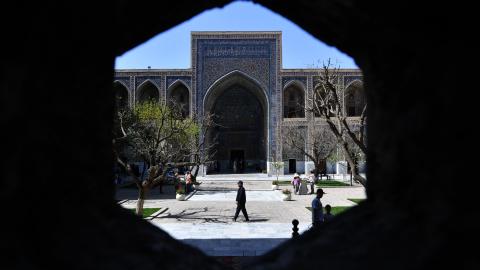In his 2011 Presidential Study Directive 10, Barack Obama declared, “Preventing mass atrocities and genocide is a core national security interest and a core moral responsibility of the United States.” He sought, in this area of humanitarian concern at least, the unity of moral responsibility and national security interest in a policy of prevention. He briefly elaborated his reasoning as follows: “Our security is affected when masses of civilians are slaughtered, refugees flow across borders, and murderers wreak havoc on regional stability and livelihoods. America’s reputation suffers, and our ability to bring about change is constrained, when we are perceived as idle in the face of mass atrocities and genocide.”
It seems unlikely that Obama’s rhetoric here did much to persuade anyone who was not already convinced about the importance of humanitarianism—that taking action to prevent mass atrocities is a sound priority for U.S. policy, indeed, a “core” priority. To say “our security is affected when masses of civilians are slaughtered” is merely to restate the proposition that prevention is a national security interest, which it may or may not be. That is the question. When “refugees flow across borders,” presumably fleeing violence, this could clearly affect U.S. national interests in some cases—but not necessarily in all cases. Atrocities certainly “wreak havoc” on local stability and livelihoods, but they may or may not have regional effects the United States is obliged as a matter of national interest to care about.
As for the reputational damage that idleness in the face of mass atrocities supposedly causes the United States, that would seem to hold mainly for those who already believe the United States should take action. The moral authority of the United States as an opponent of genocide and mass atrocities would indeed be compromised as a result of a failure to take preventive action when possible. But whether the United States has or should seek such moral authority is another question. If you have concluded that the United States has neither a moral responsibility to act to prevent atrocities nor a national interest in doing so—either in general or in a specific case—then you are likely to be willing to ignore claims about damage to your reputation coming from those who disagree with you. As for idleness constraining the ability of the United States “to bring about change,” how does it do so? One could argue—in fact, many do argue—that refraining from unnecessary humanitarian military intervention keeps America’s powder dry for those occasions when the use of force is necessary according to criteria of national interest.
President Obama, in short, was preaching to the choir—those who share his view about the “moral responsibility” of the United States to take action. That’s not necessarily a bad thing to do, but it offers little to those who would like to understand why the prevention of atrocities by and against others is something the United States must undertake as a matter of national interest. Obama offered no more than an assertion of national interest, leaving us with a humanitarian imperative one could accept for moral reasons or decline for practical ones—reasons of state, i.e., national interest.
Worse, Obama formulated his statement in such a way as to evade perhaps the hardest question arising out of this consideration of American moral responsibility and national interests: What happens when taking action to prevent atrocities actually conflicts with perceived U.S. national interests? This contradiction was nowhere more apparent than in Obama Administration policy toward Syria, where the prevention of atrocities came in second to the national interest Obama perceived in avoiding American involvement in another Mideast war.


















